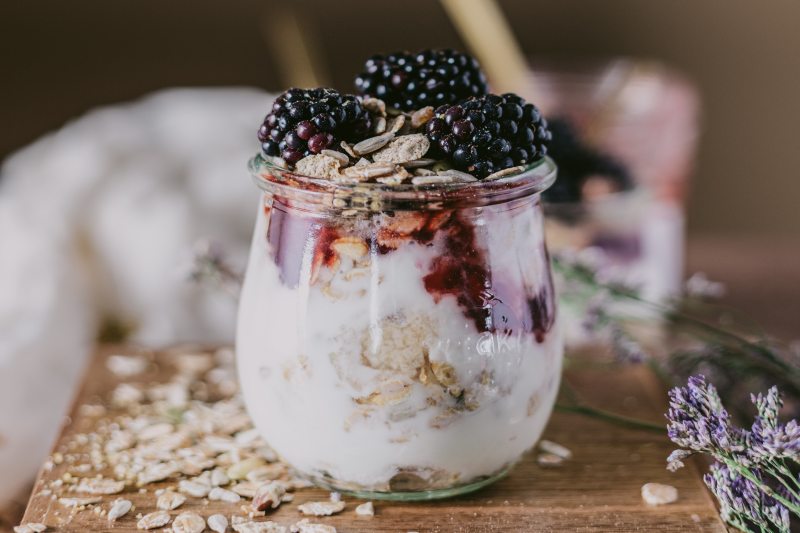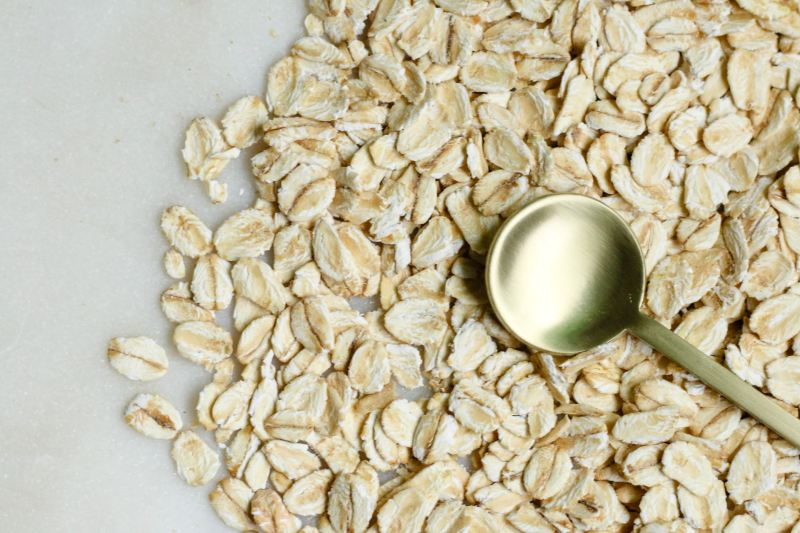Oats are among the healthiest grains because they are excellent sources of vitamins, minerals, proteins, and even antioxidants. Thus, it is little wonder that several products on the market are oat-based or contain oats in some form.
As a trainer and nutritionist, I always recommend oats to my clients, as they help provide fuel for workouts and are a low-calorie option for those looking to lose weight. It’s normal to see oatmeal in most diet plans. But do you always have to cook your oats for maximum nutritional benefits?
While cooking is the most common way to prepare oats, there are other ways to go about it. This is where overnight oats come in. In this article, we will discuss how to make overnight oats as well as the benefits and variations. It is time to dive in.
What are overnight oats?

As the name “overnight oats” implies, they are a variation of oatmeal you soak overnight in water or milk. In other words, it is no-cook oatmeal. Here, you soak the oats in some liquid over a long period. Such practice will allow the oats to absorb the liquid, making them soft enough for a quick breakfast to start your day. The breakfast can be quite versatile, as you can add any toppings to adjust the flavor to your preference.
What are the health benefits of overnight oats?

Promotes weight loss
Oats have a high nutritional value. They are high in fiber, which can help you lose weight. Oats contain a kind of fiber known as beta-glucan. It controls your food intake by keeping you satisfied for a long time. A study stated that “beta-glucan has been shown to enhance the feeling of satiety, slow gastric emptying, increase appetite-suppressing gut hormones, and promote the growth of specific gut bacteria that metabolize beta-glucan to short-chain fatty acids that may further impact energy and appetite regulation.”
Regulates blood sugar
Overnight oats regulate blood sugar in some ways. First, they have a low glycemic index (GI) score of about 55. This implies that they have a minimal impact on your blood sugar levels. So, overnight oats have a lower chance of spiking or making your blood sugar extremely low.
In addition to the low GI score, the beta-glucan in overnight oats sends glucose into the bloodstream gradually to avoid spikes in blood sugar. Beta-glucan also improves how your body responds to insulin to stabilize blood sugar. Therefore, overnight oats can be a great option for people with obesity.
Nutrients are better preserved
Generally, cooking in heat can deplete nutrients, especially heat-sensitive ones. This applies to oatmeal, as cooking can reduce or deplete nutrients. However, soaking your oats overnight, as is the practice in overnight oats, is a better way to preserve the nutrients. Consequently, you will get the full nutritional value of your oats compared to when you expose them to heat.
How to make overnight oats

Ingredients
- 1/2 cup of rolled oats (other types may not produce a fine and easily edible texture)
- 1/2 cup of milk (any kind will do)
- 1/2 tablespoon of chia seeds
- Pinch of salt
- Toppings (honey, Greek yogurt, peanut butter, berries, etc.)
Method
- Add the oats, chia seeds, salt, and milk to a well-fitted jar or container.
- Stir the mixture carefully to ensure they combine well. Be sure to check the sides of your jar or container for remnants or clumps of the mixture.
- Top the mixture with the desired toppings.
- Seal the jar properly and store it in your fridge overnight.
*Note: Overnight oats should last up to four days in the fridge when sealed well.
Delicious variations you can try

- Chocolate overnight oats: While maintaining the regular recipe above, add 1 teaspoon of red raspberry jam and 1 tablespoon of dark chocolate chips. Feel free to add raspberries to the mixture.
- Apple cinnamon overnight oats: The standout ingredients in this variation are the apple pie spice and sauteed apples. You need just 1 teaspoon of apple pie spice. For sauteed apples, you need 1 teaspoon of vanilla extract, 1 teaspoon of ground cinnamon, 1 tablespoon of coconut oil, 1 tablespoon of maple syrup or honey, and one medium apple. Heat the mixture with coconut oil until tender. After that, add the mixture to the base ingredients of overnight oats and stir thoroughly.
- Peanut butter overnight oats: Add 1 tablespoon of peanut butter to your overnight oats while making them. You can also add another tablespoon of peanut butter when you finish mixing and are about to store it.
- Chocolate banana bread overnight oats: Add mashed banana, cinnamon, and walnuts for the flavor. Toppings such as chocolate chips and sliced bananas will further improve the flavor of this variation.
- Banana walnut overnight oats: Add 1/3 diced banana and 1 tablespoon of walnuts to the base recipe above.
Common mistakes people make with overnight oats

Wrong oat-to-liquid measurement
If you fail to add enough water or milk, there may be an unequal texture, as some oats may absorb the liquid faster than others. So, while a part will be tender, others may not be as tender as the rest, creating an imbalance in texture. On the other hand, adding too much water or milk can produce an extremely watery or slimy texture — just like soup.
Not adding salt
It’s normal to ignore salt because you think other ingredients will suffice to bring out the flavor of overnight oats. But that may not be the case every time. Salt is a natural seasoning, so add a pinch to bring out the flavor of the overnight oats.
Using the wrong kind of oats
While steel-cut oats have a rough texture, instant oats submerge into the liquid. So, rolled or old-fashioned oats are perfect for overnight oats since they have the right texture and form.
Not having patience
Ideally, overnight oats need to stay mixed in an enclosed space for over 10 hours. Some even leave them in the fridge for a couple of days. This will enable the oats to mix properly with other ingredients.
Frequently asked questions

What is the basic formula for overnight oats?
For the best results, use a 1:1 ratio of oats to liquid. While this is the basic formula, it is recommended to add ingredients like chia seeds and a pinch of salt into the mixture as well.
Are overnight oats actually healthy?
Yes, they are. They can help you lose weight, control blood sugar, and ease bowel movements.
What is the trick to overnight oats?
Use the right oats (old-fashioned rolled oats). Pay attention to the oat-to-liquid ratio. Add salt, Greek yogurt, and chia seeds to enhance the flavor. More importantly, stir the mixture and refrigerate for up to four days.




